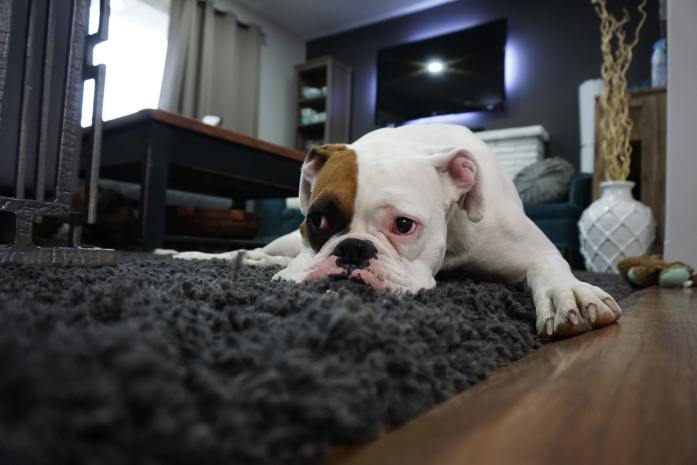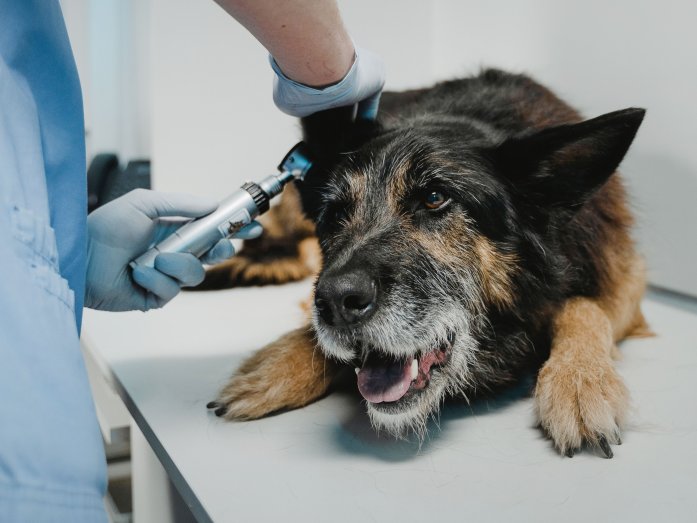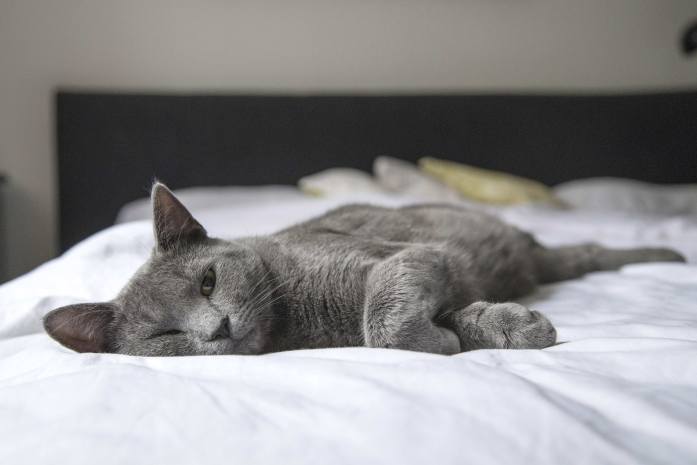Similar to how Alzheimer’s disease affects humans, dogs and cats can also develop dementia as they get older. Learning how to recognise signs of dementia in pets can help you better care for your senior pet as they age.
In this article, we will be sharing some of the early signs of dementia in both dogs and cats, as well as how you can manage these symptoms in order to give your furry friend the best care they need.
What Is Dementia?

Dementia, also known as Cognitive Dysfunction Syndrome (CDS), is an age-related illness that can cause cognitive decline in cats, dogs and humans alike. For dogs, dementia can start as early as 9 years old, while dementia in cats can begin showing signs from 8-10 years old. However, it might still be possible that your pet can have dementia at an earlier age.
What Causes Dementia In Pets?

The causes for dementia in both humans and pets aren’t fully understood. However, it is known that dementia is caused as a result of damage to, or changes in the brain. This is often age-related, however can also be influenced by other factors, such as brain-related trauma or issues (like brain tumours).
Early Signs & Symptoms Of Dementia In Pets

Dementia in pets can be difficult to spot as there are a wide range of symptoms that can be easily misunderstood for behavioural changes or another problem.
Canine Dementia
- Potty accidents at home
- Not remembering things (such as commands or tricks)
- Appears to be disoriented
- Walking in circles
- Wanders around aimlessly
- Restlessness, as well as repetitive actions/movement
- No longer seeks attention or affection
- Changes in behaviour towards caregivers
- Sleeping more than usual, especially during the day
- Appetite changes
- Excessive Barking
- Confusion
Feline Dementia
- Frequent accidents outside the litter box
- Getting lost in familiar surroundings
- Walking in circles or wandering around aimlessly
- Increased vocalisation
- Excessive grooming or lack of grooming
- Restless or anxious behaviour
- Signs of confusion
- Decreased energy levels
- Noticeable change in sleeping patterns
- No longer finding comfort in routine
Treatment For Pets With Dementia

Unfortunately, there is no cure for dementia in pets. However, there are still steps you can take as a pet parent to help better manage their condition.
If you notice the symptoms above match ones your dog or cat is showing, do contact your veterinarian as soon as you can. By performing a thorough examination, your vet will be able to rule out other illnesses that might be causing the aforementioned symptoms.
If your vet determines that your furry friend suffers from dementia, they may then prescribe medication or suggest treatments to help manage it. Regular checkups might also help to monitor your dog or cat’s condition.
Tips For Managing Pets With Dementia

Be kind and understanding! Remaining calm after multiple potty accidents can be hard, but remember that it’s not their fault. Being gentle, loving and patient can help prevent them from experiencing further stress and anxiety, which are common symptoms for pets with dementia.
To help reduce anxiety, it is also best to stick to a strict schedule when taking care of your pet’s needs, such as timely feeding and walks (for dogs). Moreover, try to keep drastic changes (like shifting your pet’s food and water bowl, or changes in room layout) to a minimum. In addition, bringing your dog for frequent walks and getting interactive toys for your pets can help to keep their minds active.
Regular veterinary care as well as a calm and loving environment is required to help treat and manage your pet’s dementia symptoms. Hence, make sure to consult your vet immediately if you notice any sudden changes in your pet’s behaviour. With your vet’s help, your dog or cat will be able to live a happy life with a dementia diagnosis.
Interested to know more about how to care for your senior pets? Check out our articles “How to Take Care of Your Senior Dog” and “How to Transition Your Cat to Senior Cat Food?” to learn more!




